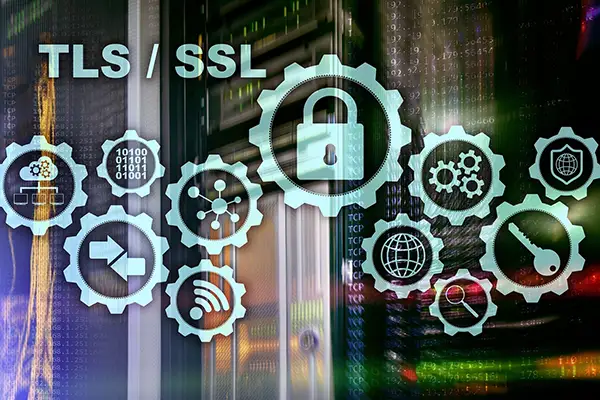The Role of Certificate Manager Platforms in IT Security

You need a certificate management system to ensure IT security and compliance as an enterprise. With the use of encryption and SSL/TLS certificates growing, a centralized management platform becomes essential.
This system tracks the lifecycle of all types of authorization used across your organization, including SSL/TLS that secure your websites and web applications. These platforms automate many issuance, renewal, and revocation processes, reducing human errors and ensuring they remain up-to-date.
SSL, in particular, requires 24/7 availability and constant monitoring. Any interruption in a website’s SSL configuration can result in downtime, expose customer data and negatively impact brand reputation. Certificate management systems mitigate these risks by automating SSL deployments, renewals, and updates across your organization’s network.
This article discusses some of the essential features and functionalities of a sound protection system and how they help enhance your IT privacy.
Reasons Why Companies Should Opt for a Certificate Management Service
In this section of the article, we will discuss the two main reasons why using a managed service can benefit your company in providing the necessary tools to have authority on your PKI requirements.

- Delegated Administration – The management services can be accessed by countless employees in an organization. Hence, the roles and privileges can be disseminated ensuring only authorized users have critical features. It will help the operations for around-the-clock monitoring, and make sure the applications run consistently.
For example, handling the billing or payment application by the finance manager will ensure efficient work. And the responsibility of managing digital certificates will not fall into one employee’s shoulder.
- Saves Time and Cost – Digital certificates save time when they are ordered the company’s profile is pre-vetted and they do not need to make corporate documentation work. While retail authorization requires companies to do the document work for each individual application.
These were the primary reasons, now let’s take a look at the feature of it.
5 Essential Features of Certificate Management Systems That Improve Your IT Security

Automated Certificate Lifecycle Management:
This automates tasks like issuing, renewing, and revoking certificates based on configured policies. It improves your IT privacy by:
- Automating tasks like requests, approvals, issuance, renewal, and revocation based on configured policies.
- Ensuring them remain valid for the required duration, avoiding expiration that can cause security gaps and downtime.
- Reducing human errors that commonly happen with manual certificate management.
Centralized Dashboard:
This is a single interface to view all certificates’ status, configurations, and activity logs. It aids IT safety by:
- Providing a single interface to view all of them across the organization, including their status, configurations, and activity history.
- Gives you full visibility into any expiring, misconfigured, or unauthorized ones that need to be remediated.
- Allows monitoring of all of the activities from a central location to detect any issues or safety issues.
Role-based Access Controls:
Role-based access controls (RBAC) are fine-grained permissions that allow you to restrict access to certificates based on employee roles. It plays the following roles in your IT protection:
- Allows restricting access to the management system based on employee roles like admins, approvers, reviewers, etc.
- Enforces the principle of least privilege by only giving users the exact permissions required for their job functions.
- Helps prevent unauthorized changes that could compromise safety.
- Improves audibility and accountability for all actions.
Workflow Approvals:
Certificate management systems allow multi-step approval workflows to be configured for requests. This feature:
- Allows multi-step approval workflows to be configured for all requests to ensure they are appropriately vetted before issuance.
- Requires approvals from designated roles to validate the need for a new and confirm appropriate configurations.
- Prevents unauthorized or fraudulent certificates from being issued that could pose security threats.
Integrations with other Systems:
Integrating with devices, DNS servers, CMDBs, etc., allows the system to auto-discover certificates and automate deployments. This:
- Allows the management system to detect certificates maintained outside of its purview by integrating with devices, DNS servers, CMDBs, etc.
- Automates deploying new ones to all relevant systems without manual tasks that are prone to errors.
- Identifies all configuration issues or safety gaps across the environment.
Choosing the Right Certificate Management System for Improved IT Security
Certificate management solutions help you govern digital certificates and improve IT safety. They provide visibility, automation, and controls over issuance, renewal, and revocation. Without a proper system, risks from expired or misconfigured increase. Sectigo provides certificate management solutions that help you simplify deployment while minimizing risks, outages, and compliance violations related to digital authorization. Centralized visibility and automation of the lifecycle are crucial steps toward strengthening your security program.










